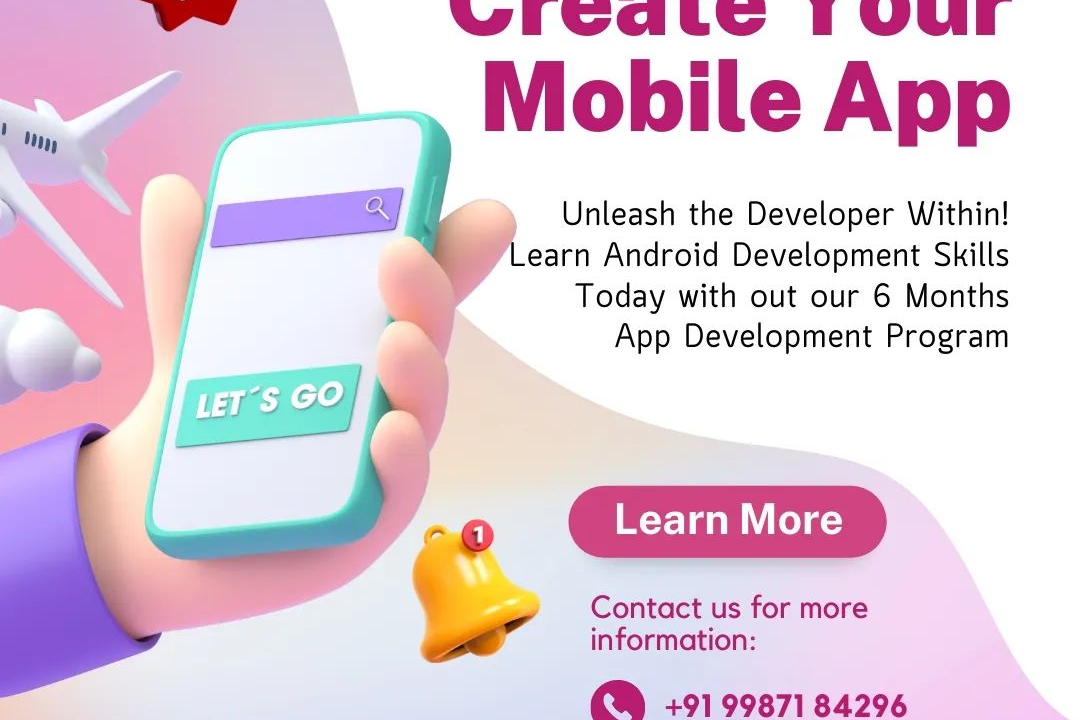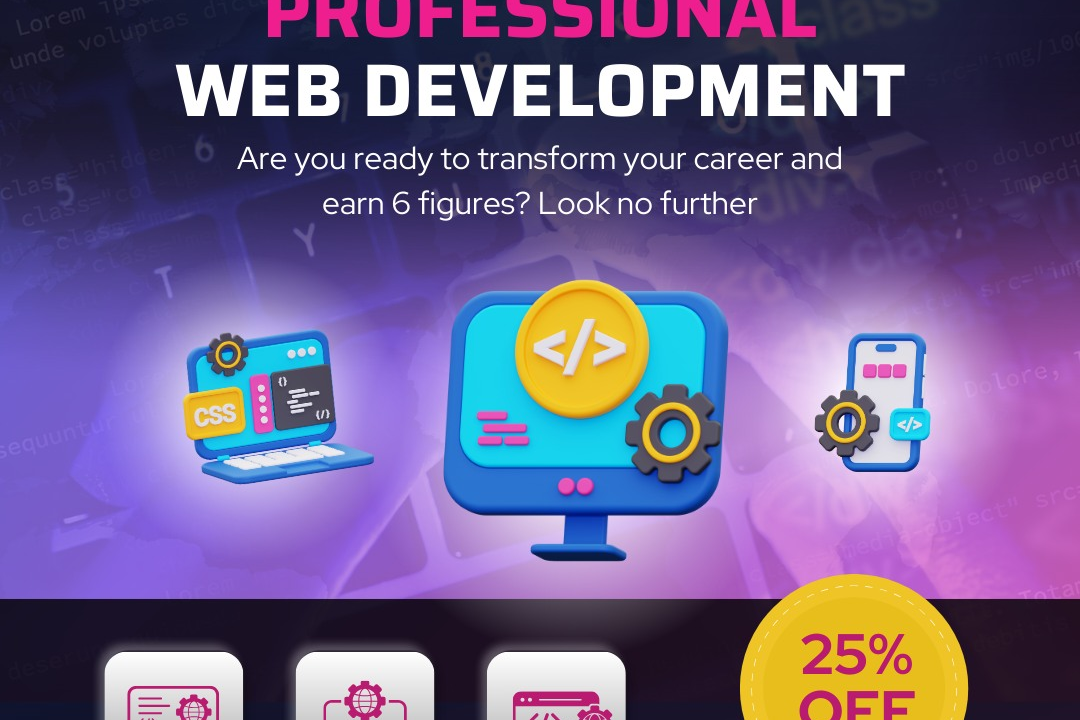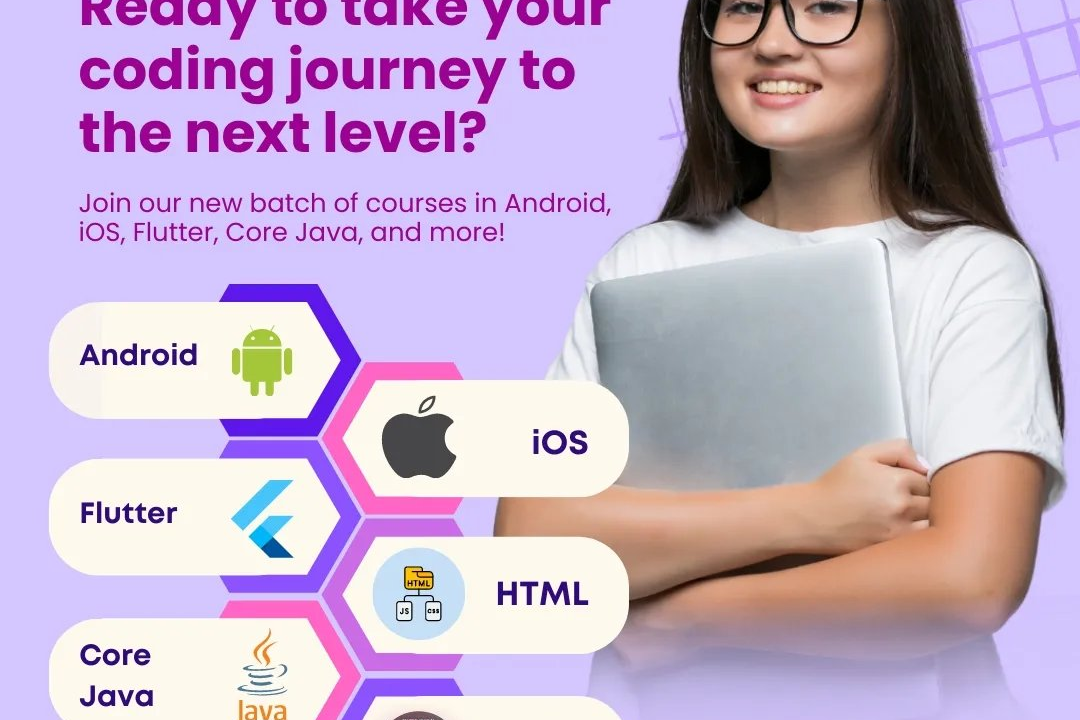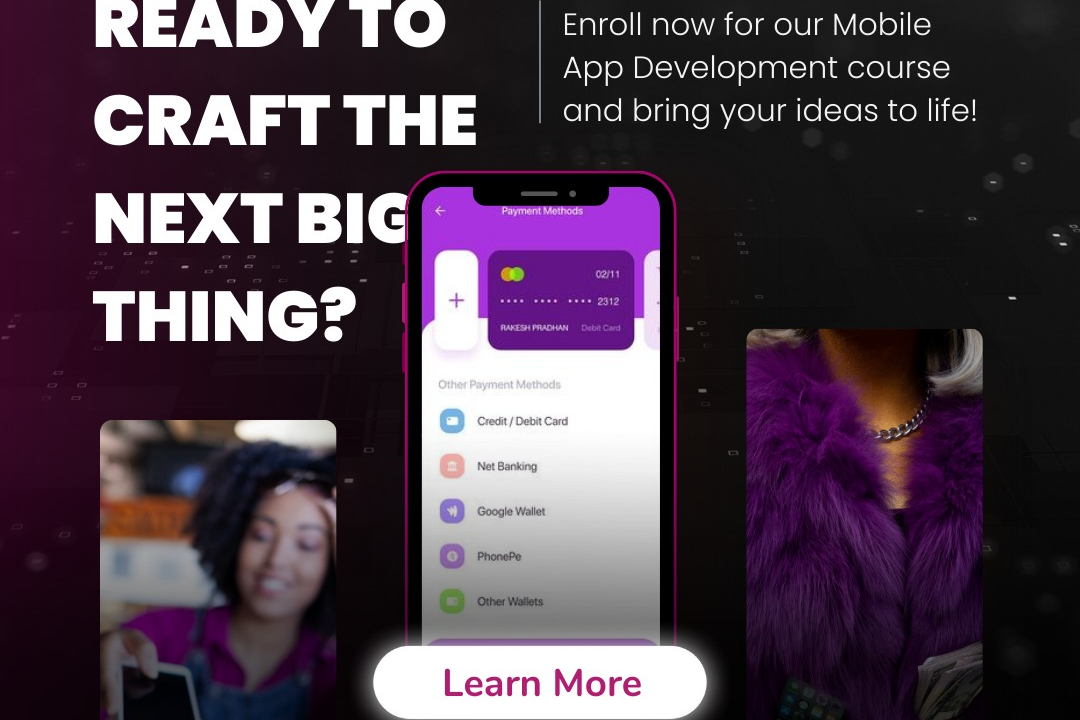Android Coding Questions
Android coding questions are technical assessments designed to evaluate a developer’s proficiency in
Android Coding Questions
Android coding questions are essential tools for assessing a developer’s technical skills and problem-solving abilities in mobile app development. They help identify a candidate’s proficiency in core Android concepts, coding best practices, and their ability to tackle real-world challenges. By practicing these questions, developers can enhance their understanding of Android frameworks, improve their debugging skills, and become more confident in building efficient, user-friendly applications. Ultimately, these questions serve as a valuable part of interview preparation and skill validation, ensuring developers are well-equipped to deliver high-quality Android apps.
To Download Our Brochure: https://www.justacademy.co/download-brochure-for-free
Message us for more information: +91 9987184296
Android coding questions are essential tools for assessing a developer’s technical skills and problem solving abilities in mobile app development. They help identify a candidate’s proficiency in core Android concepts, coding best practices, and their ability to tackle real world challenges. By practicing these questions, developers can enhance their understanding of Android frameworks, improve their debugging skills, and become more confident in building efficient, user friendly applications. Ultimately, these questions serve as a valuable part of interview preparation and skill validation, ensuring developers are well equipped to deliver high quality Android apps.
Course Overview
The ‘Android Coding Questions’ course equips learners with practical problem-solving skills and core Android concepts through real-world coding challenges. Covering essential topics like UI design, data handling, and performance optimization, it prepares developers to confidently tackle technical interviews and build efficient Android applications with hands-on exercises and project-based learning.
Course Description
The ‘Android Coding Questions’ course offers practical programming challenges to help learners master key Android concepts, improve problem-solving skills, and prepare for technical interviews through hands-on exercises and real-world projects.
Key Features
1 - Comprehensive Tool Coverage: Provides hands-on training with a range of industry-standard testing tools, including Selenium, JIRA, LoadRunner, and TestRail.
2) Practical Exercises: Features real-world exercises and case studies to apply tools in various testing scenarios.
3) Interactive Learning: Includes interactive sessions with industry experts for personalized feedback and guidance.
4) Detailed Tutorials: Offers extensive tutorials and documentation on tool functionalities and best practices.
5) Advanced Techniques: Covers both fundamental and advanced techniques for using testing tools effectively.
6) Data Visualization: Integrates tools for visualizing test metrics and results, enhancing data interpretation and decision-making.
7) Tool Integration: Teaches how to integrate testing tools into the software development lifecycle for streamlined workflows.
8) Project-Based Learning: Focuses on project-based learning to build practical skills and create a portfolio of completed tasks.
9) Career Support: Provides resources and support for applying learned skills to real-world job scenarios, including resume building and interview preparation.
10) Up-to-Date Content: Ensures that course materials reflect the latest industry standards and tool updates.
Benefits of taking our course
Functional Tools
1 - Android Studio: Serves as the primary integrated development environment for Android app development, providing a comprehensive platform for coding, designing, and debugging applications. Its IntelliJ IDEA based interface offers robust tools, code completion, and real time error detection, simplifying complex programming tasks. Students learn to efficiently utilize its features for project management, resource editing, and performance profiling, which are essential skills for professional Android developers.
2) Java Development Kit (JDK): Essential for compiling and running Java based Android applications, the JDK provides the core libraries and development tools necessary for writing clean, efficient Java code. Understanding its setup and usage enables students to implement backend logic and understand the Java ecosystem underlying Android apps, fostering a strong foundation in programming fundamentals relevant to mobile development.
3) Android SDK (Software Development Kit): Offers a collection of tools, libraries, and APIs that enable students to build, test, and debug Android applications effectively. It includes emulator configurations for simulating various devices, making it possible to test app compatibility across different screen sizes and Android versions. Familiarity with SDK components ensures students can leverage device hardware features like camera, GPS, and sensors in their apps.
4) Gradle Build System: Automates and manages the build process, ensuring consistent compilation and packaging of Android applications. Students learn to configure build scripts, handle dependencies, and optimize build times, which are critical skills in real world app deployment. Mastery of Gradle enhances efficiency and allows students to customize build variants for different testing or production environments.
5) Git Version Control: Teaches students how to track code changes, collaborate with team members, and manage code repositories efficiently. Understanding Git workflows such as branching, merging, and pull requests familiarizes students with industry standard development practices, vital for teamwork and maintaining code quality in professional settings.
6) Emulator and Testing Tools: Android Studio's emulator simulates various devices, screen resolutions, and Android versions, providing a risk free environment for testing applications. Students learn to configure and troubleshoot emulators, test app performance, and debug issues without needing physical devices, streamlining the development lifecycle.
7) Debugging Tools: Integrated debug tools in Android Studio, such as breakpoints, logcat, and code inspectors, help students identify, analyze, and fix bugs efficiently. Learning to utilize these tools enhances problem solving skills and leads to more stable, reliable applications.
8) Material Design Components: A library of UI elements that adhere to Android's design guidelines, helping students build visually appealing, intuitive interfaces. Mastery of these components ensures applications deliver a consistent and engaging user experience aligned with industry standards.
9) Firebase Integration: Provides backend services like real time databases, authentication, and cloud messaging, enabling students to enhance their apps with cloud capabilities and user management features. Using Firebase in projects prepares students for building scalable and feature rich applications.
10) Testing Frameworks and Tools: Includes JUnit, Espresso, and Robolectric, which facilitate writing automated tests for app logic, UI, and integration, ensuring code reliability and quality. Understanding testing tools emphasizes best practices in software development and helps students produce bug free apps.
11 - Layout and UI Design Tools: Visual editors and layout inspectors in Android Studio allow students to design responsive, user friendly interfaces efficiently. These tools support drag and drop functionalities, enabling rapid prototyping and iteration on UI components.
12) Android Profiler: Facilitates real time monitoring of app performance, such as CPU, memory, and network usage, helping students optimize app efficiency. Familiarity with profiling tools is crucial for developing high performance applications suitable for a wide range of devices.
13) Material Adaptive Components: Tools that enable creating adaptable layouts for different device orientations and screen sizes, helping students build flexible and accessible apps. This knowledge is vital for ensuring applications perform well across the diverse Android ecosystem.
14) API Testing Tools: Postman and similar platforms aid in testing RESTful APIs integrated within Android apps, ensuring seamless backend communication. Mastery of API testing is key for developing feature rich applications reliant on server side data.
15) Plugin and Extension Support: Students learn to enhance Android Studio with plugins like Android Drawable Generator, Kotlin support, and code quality analyzers, which streamline development workflows. These tools improve productivity and code quality through automated checks and resource generation.
16) Dependency Management Tools: Tools like Maven and Gradle facilitate managing external libraries and dependencies, ensuring compatibility and simplifying updates. Effective dependency management is essential for maintaining modern, feature complete Android applications.
17) Code Analysis and Lint Tools: Android Studio offers built in code analysis to identify potential bugs, security issues, or deprecated APIs, guiding students toward writing clean, efficient code. Leveraging these tools cultivates good coding practices and long term project maintainability.
18) Mobile Device Management Platforms: Tools that assist in testing and deploying applications across multiple devices remotely, ensuring broad compatibility. Learning these platforms prepares students for real world testing and client deployments, reducing device specific issues.
19) Performance Optimization Tools: Includes network profiling, heap analysis, and rendering insights, enabling students to identify bottlenecks and optimize application responsiveness. Mastery of these tools results in smooth, user centric apps driving better user engagement.
20) Continuous Integration and Deployment (CI/CD) Pipelines: Tools like Jenkins, CircleCI, or GitHub Actions automate testing and deployment workflows. Familiarity with CI/CD practices ensures students can deliver updates efficiently and reliably in a professional development environment.
21 - Kotlin Programming Language: Increasingly adopted as the official language for Android development, Kotlin offers concise syntax and modern features that improve developer productivity. Students will learn to write clean, safe code, making their applications more maintainable and efficient.
22) ConstraintLayout: A versatile layout manager that enables building complex, responsive user interfaces with flat view hierarchies. Mastery of ConstraintLayout allows students to design adaptable UIs that work seamlessly across diverse device screens and orientations.
23) Jetpack Libraries: A collection of AndroidX components such as LiveData, ViewModel, Navigation, and Room, that facilitate easier app architecture and lifecycle management. Students learn to adopt best practices for developing robust, maintainable, and scalable applications.
24) Material Design Guidelines: Understanding Google's design principles helps students create applications with intuitive navigation, appealing aesthetics, and consistent user experiences, aligning with current industry standards.
25) Background Service Development: Students explore creating and managing background services, such as media playback, location tracking, or data sync, that run independently of the main UI to provide seamless user experiences.
26) Handling Different Android Versions: Techniques for maintaining backward compatibility through API level checks and support libraries enable students to develop applications that function across a broad spectrum of devices and Android OS versions.
27) Multithreading and AsyncTask: Teaching asynchronous programming models to manage background operations without freezing the UI ensures smooth application performance, a vital aspect of mobile development.
28) Deep Linking & App Links: Students learn to implement deep linking features that facilitate seamless navigation within apps or from external sources, enhancing user engagement and experience.
29) Security Best Practices: Covering data encryption, secure data storage, and permission handling equips students to develop secure applications that protect user data and comply with privacy standards.
30) Accessibility Features: Teaching how to implement accessible UI elements ensures apps are usable by individuals with disabilities, broadening user reach and adhering to inclusive design principles.
31 - Localization & Internationalization: Skills in adapting apps for multiple languages and regions prepare students to build globally accessible applications with proper language support and cultural considerations.
32) In App Billing & Payment Integration: Introducing secure payment gateways allows students to develop monetization features within their apps, essential for commercial Android solutions.
33) Push Notifications & Messaging: Guidance on integrating Firebase Cloud Messaging and other notification systems helps students engage users effectively through timely alerts and updates.
34) Data Persistence Techniques: Focus on storing data locally via SQLite databases, SharedPreferences, or Room, enabling apps to function effectively offline and improve data management.
35) Media Handling & Camera APIs: Training on multimedia APIs allows students to integrate camera functions, image processing, audio recording, and playback features into their applications.
36) Augmented Reality (AR) & Virtual Reality (VR): Exposure to ARCore and similar SDKs prepares students to develop immersive apps that blend digital and real world experiences.
37) Speech Recognition & Text to Speech: Through voice input and output features, students can create intuitive hands free interfaces, enhancing accessibility and user interaction.
38) Wear OS & TV App Development: Expanding skills to develop applications suitable for wearable devices and smart TVs ensures broader ecosystem coverage.
39) App Store Optimization (ASO): Teaching best practices for publishing and promoting apps in the Google Play Store maximizes visibility and downloads.
40) Privacy & Data Compliance: Emphasizing adherence to GDPR, CCPA, and other regulations ensures students develop apps that respect user privacy and meet regulatory standards.
41 - Using Android Extensions & Plugins: Leveraging extensions like Kotlin Android Extensions or Android Jetpack avoids boilerplate code and accelerates development workflows.
42) Integration with Third Party SDKs: Training on incorporating analytics, advertising networks, or social media SDKs equips students with the skills to extend app functionalities effectively.
43) Cloud Storage & Sync: Knowledge of integrating cloud based solutions like Google Drive or AWS enables apps to synchronize data across devices, enhancing user experience.
44) Custom View Creation: Skills in designing custom UI components allow students to create unique and engaging app interfaces tailored to specific needs.
45) App Localization Automation: Implementing workflows for simultaneous support of multiple languages accelerates international app deployment.
46) Release Management & App Update Strategies: Guidance on versioning, staged rollouts, and update best practices ensures smooth deployment and user satisfaction.
47) Analytics Integration: Using tools like Google Analytics for Firebase helps students track user behavior and improve app performance based on real data.
48) Offline Mode Development: Teaching strategies for designing apps that provide core functionalities offline ensures accessibility in areas with limited connectivity.
49) Gesture Recognition & Sensor Data Processing: Training on utilizing device sensors and gestures enriches app interactions and introduces innovative UI elements.
50) Code Optimization & Refactoring: Emphasizing clean, efficient code practices ensures scalable, maintainable, and high performance applications for long term success.
Browse our course links : https://www.justacademy.co/all-courses
To Join our FREE DEMO Session:
This information is sourced from JustAcademy
Contact Info:
Roshan Chaturvedi
Message us on Whatsapp: +91 9987184296
Email id: info@justacademy.co
Android App Development Course Syllabus
create program in php to PAGE LOAD and COUNTER INCREMENT












